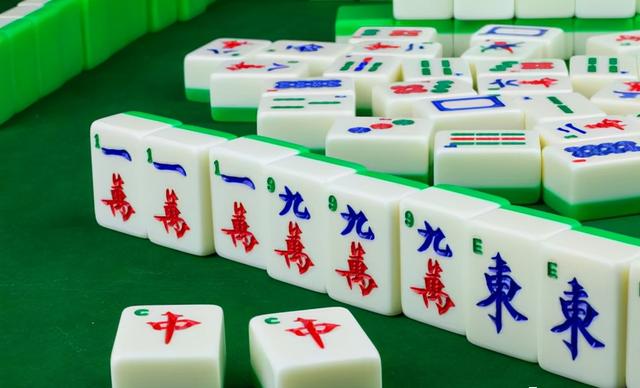There are always friends who attribute the loss of mahjong to bad luck. I have to say that luck really affects the game of drawing cards like mahjong. But mahjong doesn't always have to be won by luck. If you want to win, if you want to stop loss and not lose, you must also have excellent technology! Below, mahjong masters will share 4 mahjong skills with you, many veterans do not know, it is recommended to collect.
1. Know thyself and know the other, and never lose a battle

When playing mahjong, guessing cards is a very important technique. Being able to reasonably predict the cards and cards needed by other players and maximize the probability of protecting their own cards is very important.
Guessing cards mainly focuses on two points, one is that the cards in their hands are very good and need to be played by the upper family, whether the upper family has this card in their hands, will they be given up? There is also a card in their hand, then they must be guarded against, and what needs to be guessed is what cards other families need? Which cards are most likely to listen? These require reasonable guesses based on the order of the cards on the current table and the other house cards.
2. Grasp the proportions of card deduction and release
Playing mahjong should pay attention to restraint, when to let touch, what cards to buckle, what cards to play first, and what cards to play later, we must grasp the measure. The general principle is to follow the situation on the card face.
In the stage of listening to many people, it is necessary to keep an eye on the house of the next home, so as not to set off the cannon. If your own card is very weak, then the deduction should be correspondingly stricter, and do not give others the opportunity to eat and touch. If your own cards are very smooth, you can put some cards out appropriately when you deduct the cards to induce others to play the cards they need and prompt themselves to listen.
3, 3 before 5 dare to give 4
The meaning of this sentence is that if your next family has given away 5 cakes before the 3 cakes, then you can safely and boldly give away 4 cakes, and the 4 cakes are absolutely safe for the next family. In the same way, if the next family has given up 5 cakes before giving up 7 cakes, then you can also be assured to boldly give 6 cakes.
The possibilities for giving up 5 cakes and then 3 cakes are diverse. Maybe 3, 5 cakes this canta because of the touch into the 2 cakes and first give up 5 cakes, first became a two-sided pair, and then touched a 2 cakes and then 3 cakes, and then became a pair of mahjong heads, if he then touched the 1 cake or 4 cakes, he will never give up 3 cakes. Whatever the possibility, if you give up 4 after he gives away 5 and 3, he is absolutely useless.
4, two eight useless should not stay
The card sheet says, "Two eights are useless and should not be left behind." The liaison ability of the 28 cards is medium. In general, as the hand progresses, after the middle period, the two or eight cards will be discarded in large quantities. At this time, it is easy to touch two or eight pairs, and it is easier to listen to the mouth of two eight and play cards. People who often play mahjong have this feeling, and when the cards they listen to contain two or eight mouths, it is relatively easy to reconcile. When it comes to the backcourt, listening to two eight is even easier than listening to nine.
Mahjong Master launched 55 sessions of accelerated mahjong master course: comprehensively explain all the knowledge of mahjong, multi-dimensional analysis, from the actual combat from the beginning, all aspects, multi-dimensional analysis, analysis of a deck of cards that just started, how to play, how to touch, how to prevent other Hu cards.
The content includes how to dismantle the tower, how to play cards, and how to calculate which cards have a greater winning rate based on the cards in and in the hand. How to judge the cards in your hand, what are good cards, and what are good towers. Grab a card and how to play the next. How to calculate the cards that other houses want.